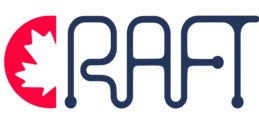For an emergency: Call 911 & Campus Police 416-978-2222
For building-related issues: 416-978-3000
For IT system outages: 416-978-4621
Operations: dan.voicu@utoronto.ca or call 416-978-8472
Director: guenther@mie.utoronto.ca
EHS Biosafety Officer: Ayoob.ghalami@utoronto.ca or call 416-978-3981
Biosafety Manual
The Tissue Foundry Biosafety Manual can be found HERE. The manual contains essential information and documents for the, including:
-
- Standard operating procedures (SOPs) for lab instruments and common equipment.
- Standard Work Procedures (SWP) for best practices in the lab.
- Emergency Response Plan (ERP).
* The U of T Biosafety Manual can be found HERE.
Safety Data Sheets
SDS can be found HERE. Alternatively, they can be found directly from the vendor.
Report a Safety Incident
If you’ve had an incident as defined HERE, please contact Dan Voicu (dan.voicu@utoronto.ca) ASAP. An incident report form must be submitted to CRAFT no longer than 24 hours later.
Safety Training
It is mandatory for CRAFT Users to complete specific training prior to gaining access to the Device Foundry (BA7175) and Tissue Foundry (MC403/405). Please contact craft@utoronto.ca for registration and more info.
Training will involve taking online MIE safety training, EHS courses, and in-person orientation.
Orientation
The first visit to CRAFT facilities will be a tour of the physical space and information on the following:
- Emergency (location of first aid kit, safety shower, eyewash station, fire extinguisher, spill kit, room exits)
- Contact information.
- Location and access of resources (SDS, SOPs, manuals, workplace labels, etc).
- CRAFT- Device Foundry Orientation
- CRAFT – Tissue Foundry Orientation
After orientation, new users will be provided keycard access to the facility – this privilege cannot be shared with unauthorized individuals, which includes bringing in lab members or external visitors.
Environmental Health & Safety (EHS)
The EHS website provides resources for biosafety, chemical safety, waste management, occupational health, accident reporting, and health & safety training.
Chemical Waste Management
- All chemical waste must be properly labelled and placed in the appropriate chemical waste cabinets.
- Green pails are for chemical powders and contaminated broken glassware.
- If you’re unsure where your waste should be disposed please contact CRAFT staff.
- Reference for Disposal Management Manual
- A simplified poster guide for waste disposal
Biological Waste Management
- Yellow pails are for biological waste only. Tubes and containers must be empty.
- Waste media needs to be disinfected with sodium hypochlorite (1% final sodium hypochlorite concentration) for a minimum contact time of 30 minutes, then triple rinsed before disposing the container into the yellow pail.
- Sharps containers are for needles, contaminated glassware, and any other objects that may penetrate normal garbage liners.
Chemical Labeling
Room temperature items: Any prepared or transferred biologicals/chemicals in tubes, bottles, etc., must have a workplace label found in the labels binder.
Fridge/Freezer items: CRAFT Users may use labels from the labels binder as an option. If not, samples must be clearly labelled and identified with the following:
- Surname of PI.
- Name (or initials) of CRAFT User.
- Dates (prepared, expiry, opened, etc).
- Contents.
Labels are provided to be filled out by users. Unlabelled items will be regularly discarded.
Storage Space
- Lockers are available at both the Device and Tissue Foundries. Please speak to a CRAFT staff member if interested in using one.
- Freezer/Fridge space is only available for those who use the facility and require it. A CRAFT staff member must be notified to keep track of space, availability, and inventory.
- Availability is for temporary basis only and not for permanent storage!
- For example, a CRAFT User may store media in the fridge if he/she will be imaging cells on the Incucyte throughout the week.
- If extensive storage time is needed, please discuss plans with CRAFT staff. Any containers left without permission or label may be disposed.


